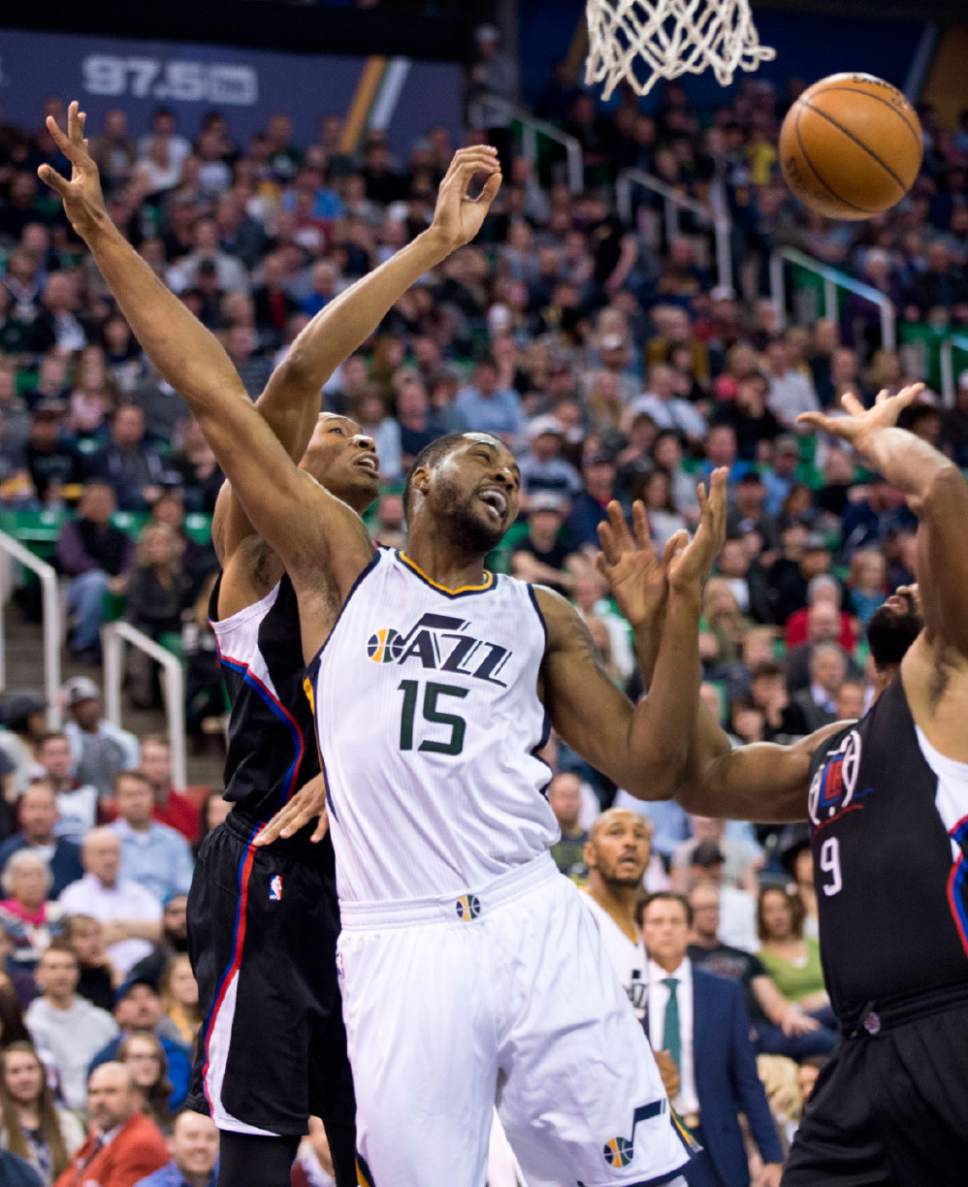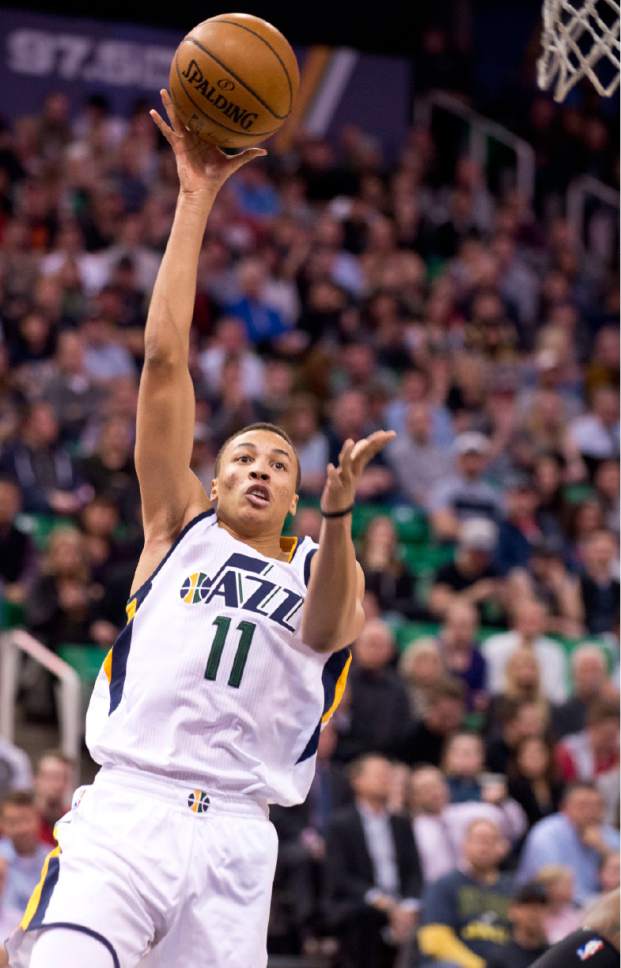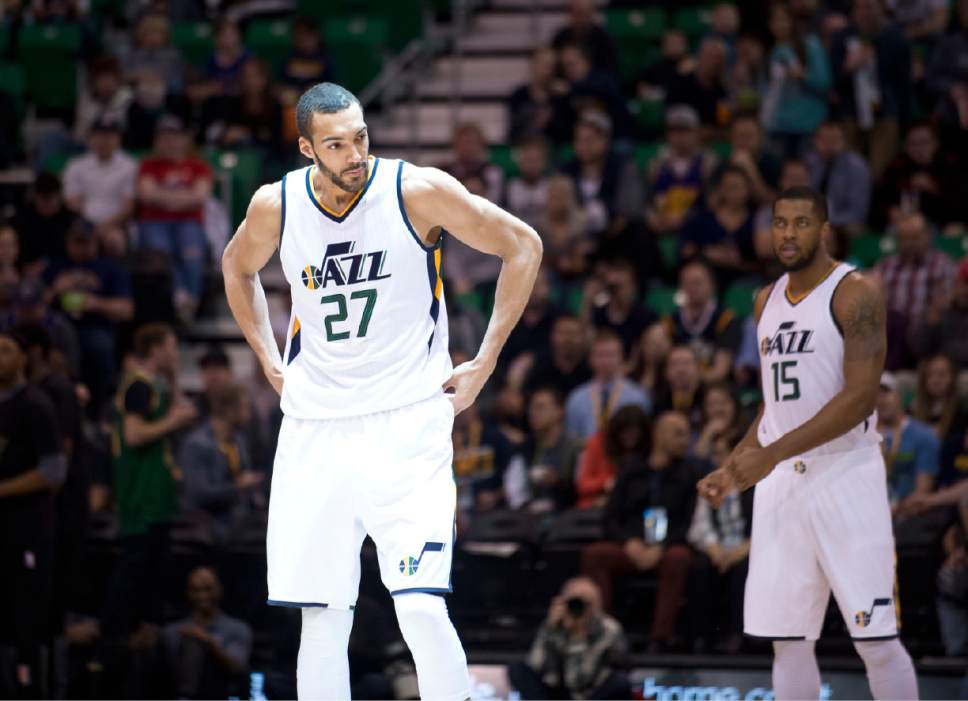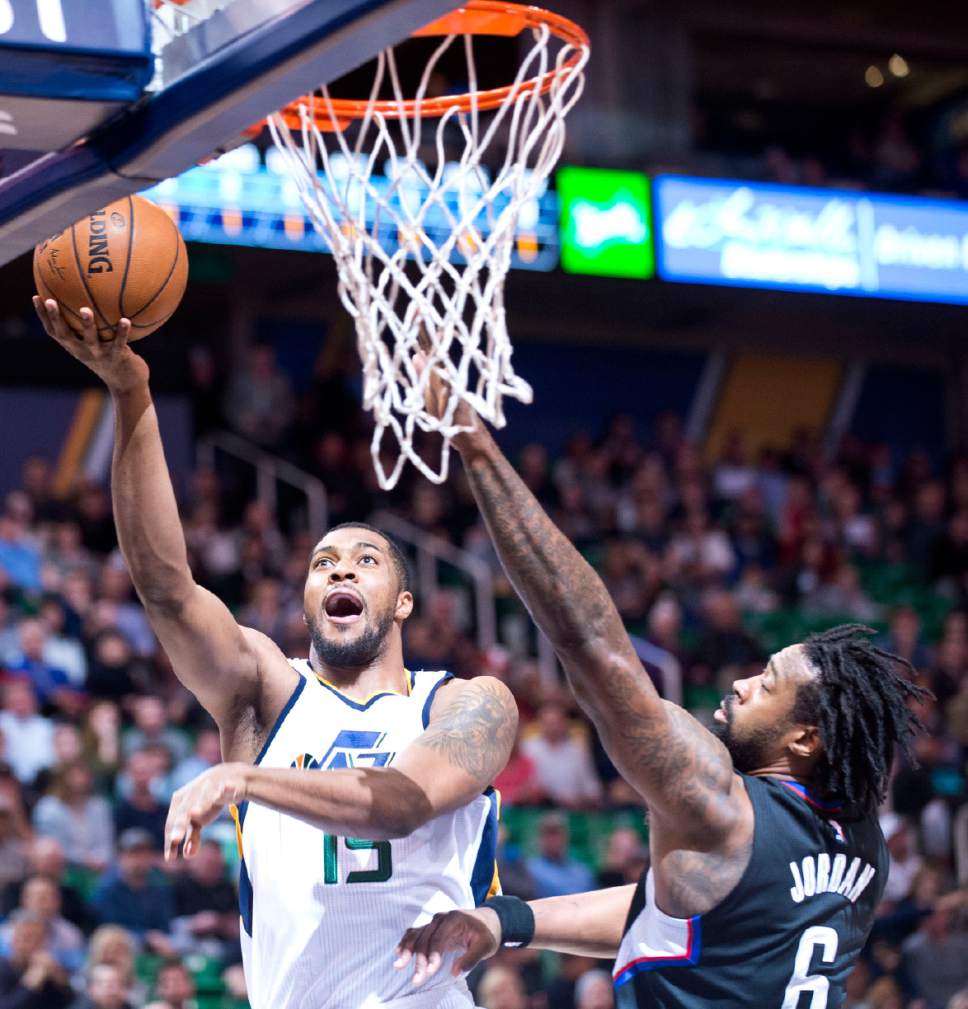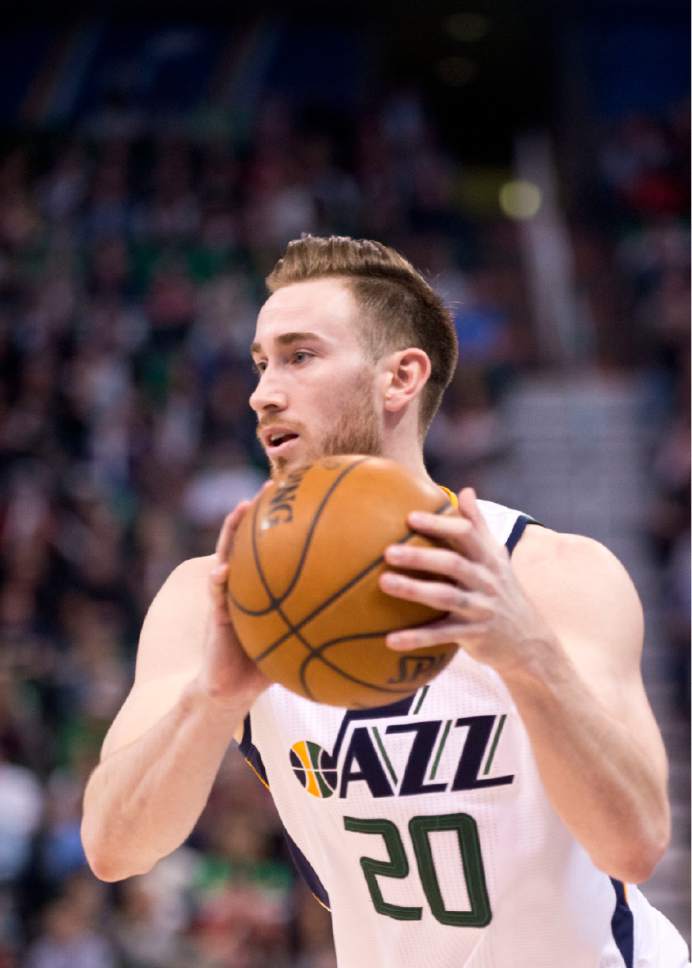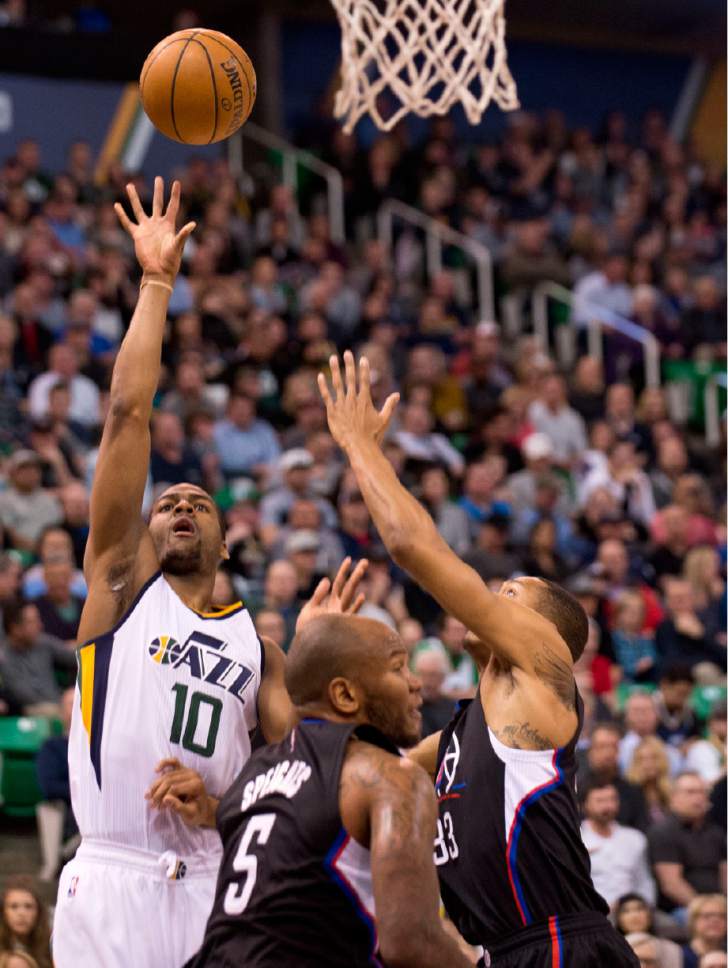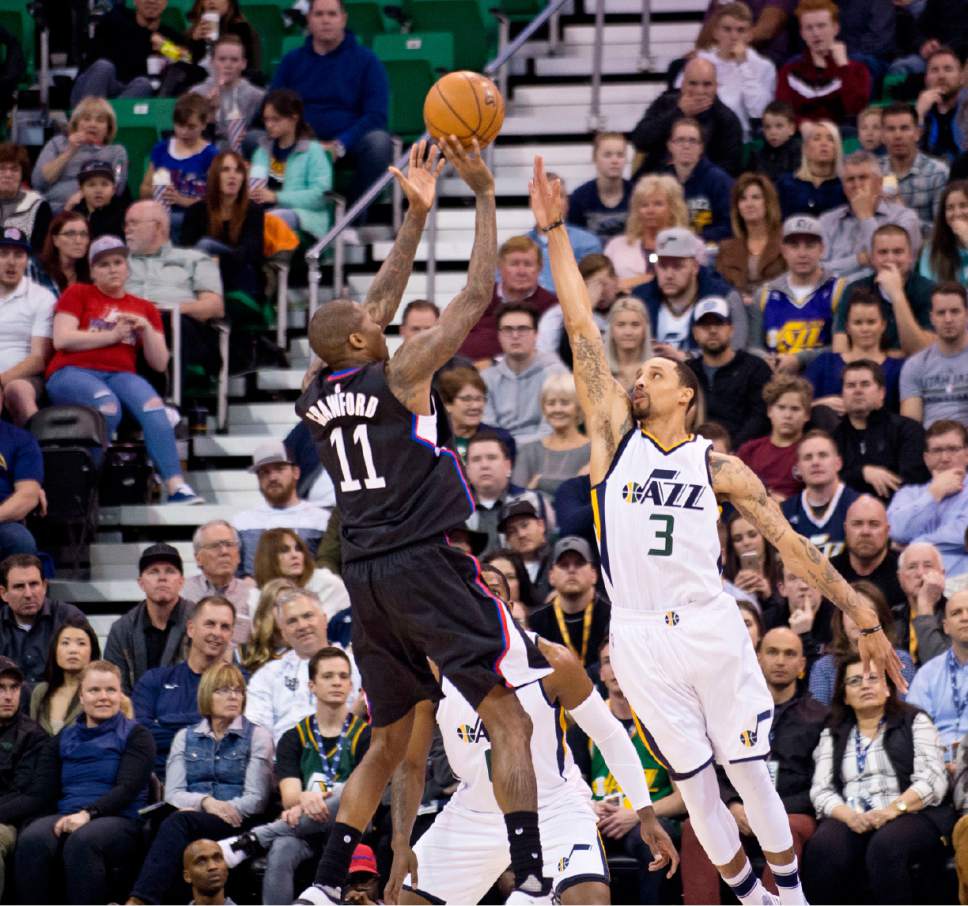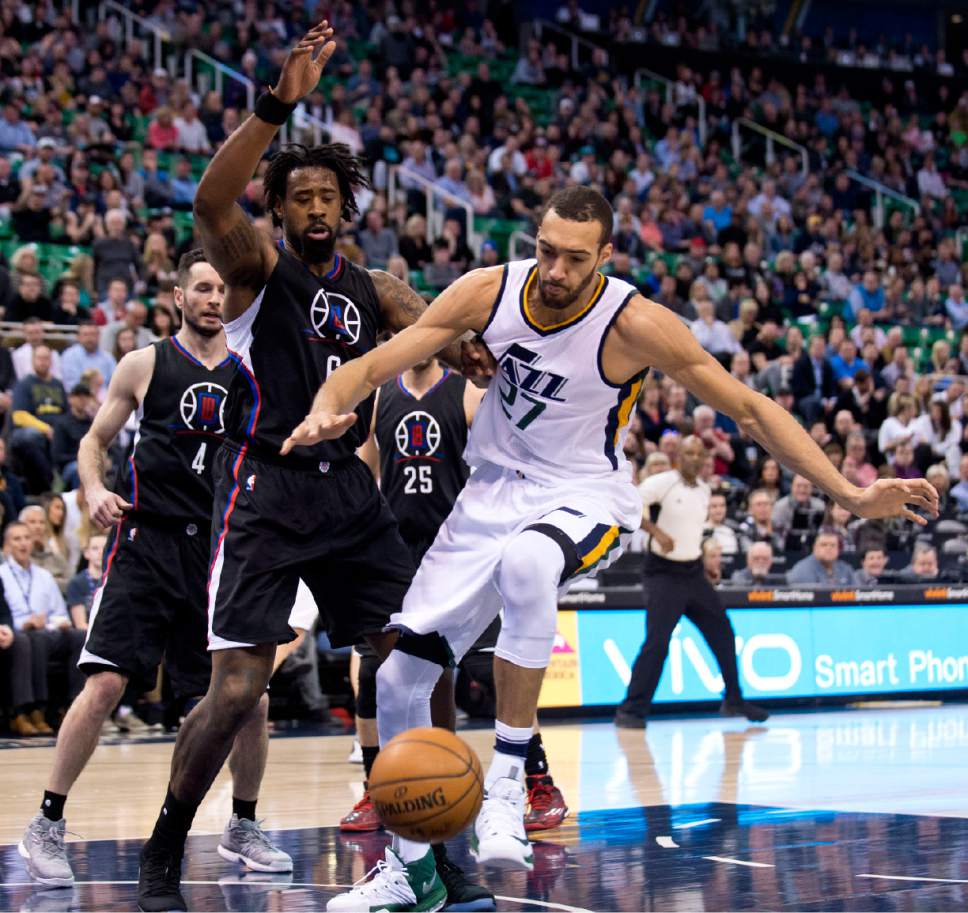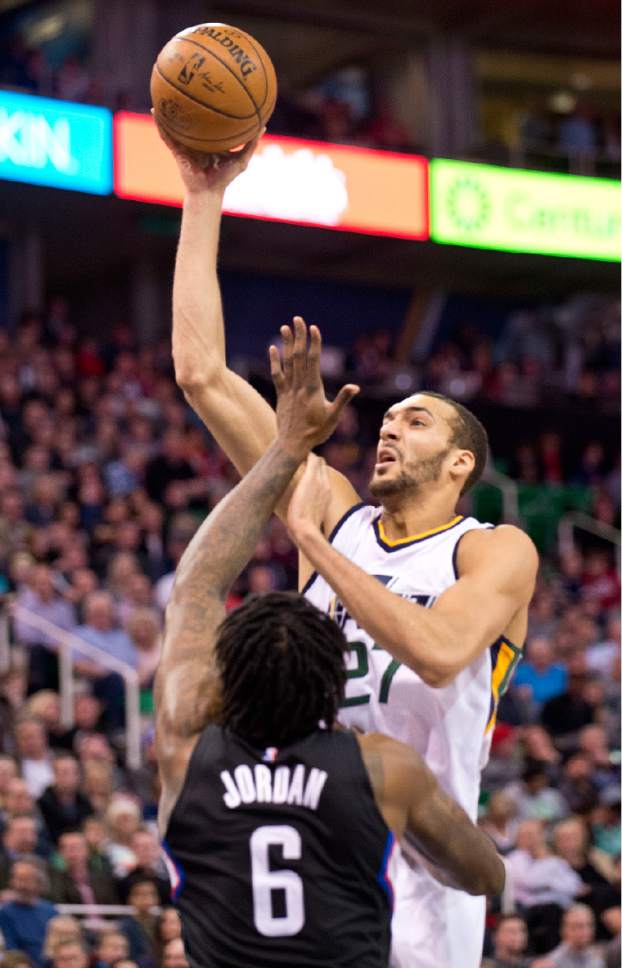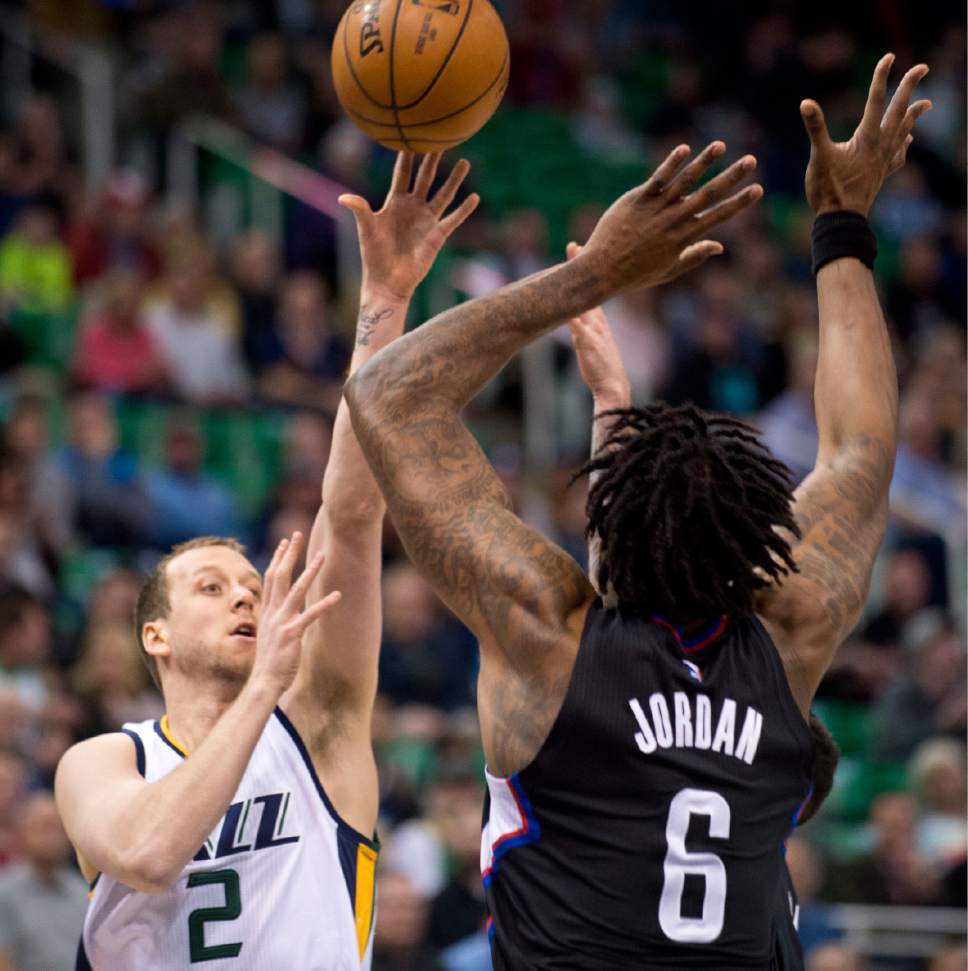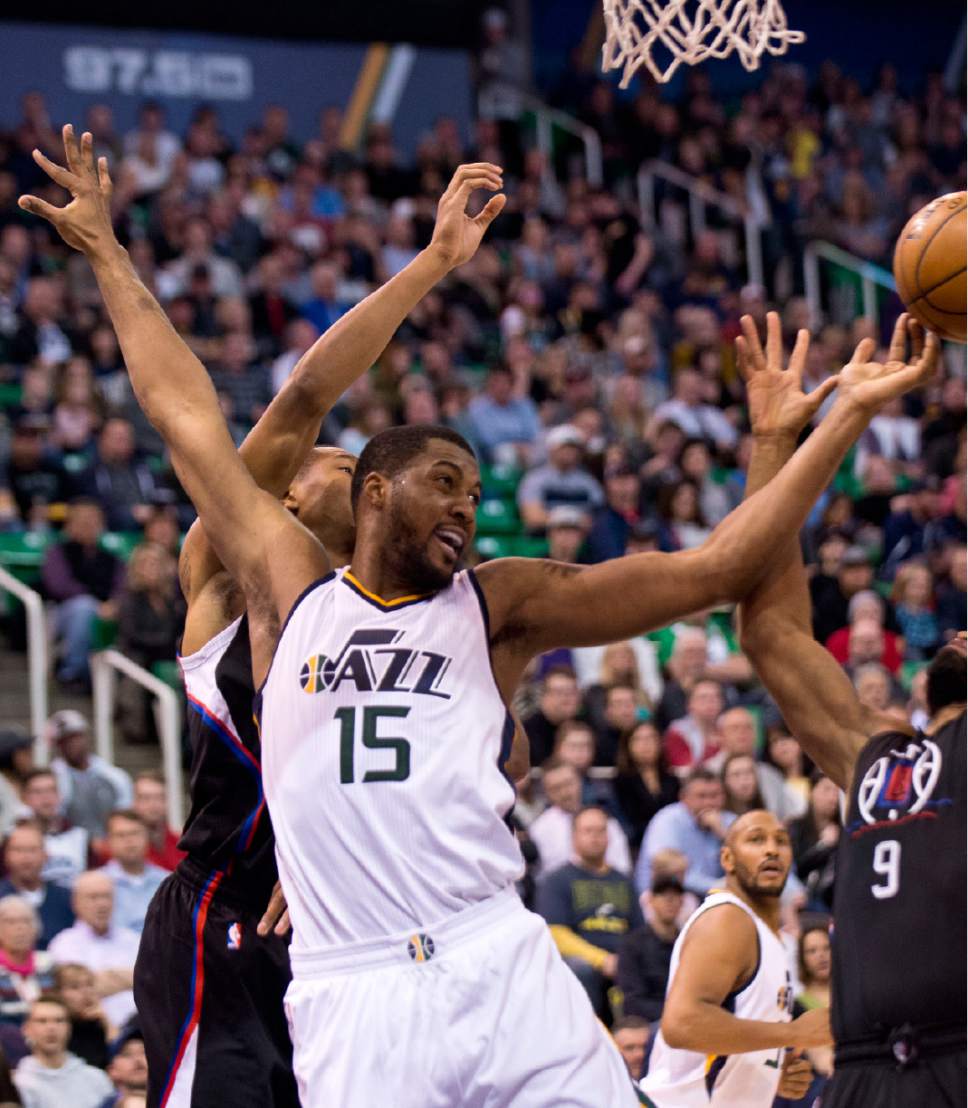This is an archived article that was published on sltrib.com in 2017, and information in the article may be outdated. It is provided only for personal research purposes and may not be reprinted.
Now that the Jazz have fallen to No. 5 in the NBA's Western Conference standings, they've lost their temporary hold of home-court advantage in the first round of the playoffs.
Here's the big question, as of Monday night: How much good would that do them, anyway?
The Jazz have lost the aura they once enjoyed at Vivint Smart Home Arena, in the building's era of former names. The Los Angeles Clippers' 88-72 demolition drove home that point to an embarrassing degree.
On a night when Denver scored 79 points in the first half against Golden State, the Jazz futilely tried to score — even after the final buzzer. Trey Lyles' 3-pointer was ruled too late, and they posted their lowest point total in more than two years. The Jazz's two best players, Gordon Hayward and George Hill, went a combined 4 of 23 from the field, even with Hayward making his last attempt.
"I had some really good looks early; didn't knock 'em down," Hayward said. "If I hit those, it's a different game."
Hayward's absence of overreaction might be healthy, but his rationalization overlooked how the Jazz once trailed by 29 points, and how coach Quin Snyder said the Jazz's lack of toughness in running their offense "showed what a bad team looks like."
This is crazy. This is disturbing. This is almost laughable. Remember how easy everything looked offensively for the Jazz on the road last week, when they ransacked Atlanta and New Orleans and stormed ahead of Dallas? But then they faded in that overtime loss to the Mavericks, never led Boston at home Saturday and were ahead of the Clippers only briefly — failing to exploit the absence of point guard Chris Paul.
These guys suddenly are staggering toward the All-Star break. And they'd better figure out why they can't beat any decent opponents at home anymore. In the Snyder era, the Jazz have become amazingly good on the road, for a team of their stature. But they've underperformed at home.
In three seasons, Snyder is 48-60 (.444) on the road and 64-48 (.571) at home. Judging by the NBA's norms and the Jazz's history, those are some weird numbers. The Jazz are 15-11 on the road and 19-11 at home — where they went 37-4 in 2007-08 with Deron Williams and Carlos Boozer.
In the pregame interview session, I asked Snyder my annual question about why his team is relatively worse at home. The coach who studies everything offered no theory, again.
When someone asked about Monday's importance, Snyder said, "You may look back and say, 'Wow, that was a pivotal game.' … But we know how good they are. We're at home. We don't win as much at home as we do on the road."
He gave me a good-natured glance, paused amid laughter, and continued: "In all seriousness … this is a good barometer game for us as a team."
The Jazz's postgame reading: struggling, searching and sinking in the standings, below the Clippers and barely ahead of No. 6 Memphis.
When it was pointed out to Clippers coach Doc Rivers pregame that his team had won on eight straight visits to Salt Lake City since a loss in January 2012 (when Paul Millsap led the Jazz with 20 points), he recoiled. "I'm not going to bring that up, that's for damn sure," he said. "This is a tough place to play."
Is it, though?
Salt Lake City's altitude remains high, the arena is still loud and fans are always supportive. Yet somehow, the Jazz have lost one of the NBA's biggest home-court advantages. If they fail to claim the No. 4 spot in the West, their mediocre performance at home will be the biggest reason they fell short. In that case, having to start a playoff series on the road shouldn't matter.
kkragthorpe@sltrib.com Twitter: @tribkurt


